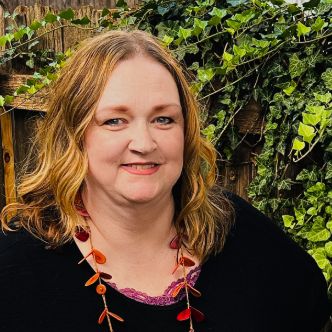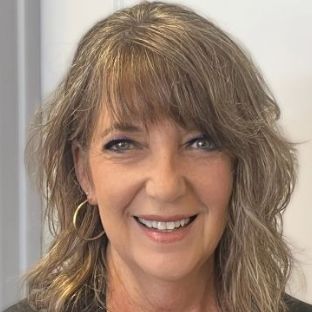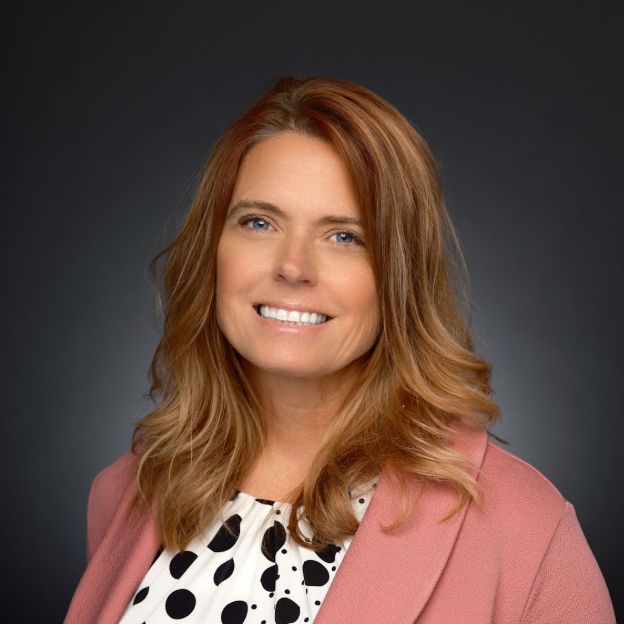Starting Your Substance Use Therapy Journey in Kansas City
Kansas City’s bi-state metro offers a wide range of Substance Abuse therapy options across neighborhoods from Midtown and the Crossroads to Overland Park, Independence, and the Northland. Start with MiResource’s directory to see up-to-date providers on both the Missouri and Kansas sides, including in-person and telehealth choices. You can browse profiles, compare specialties, and quickly identify clinicians experienced in harm reduction, motivational interviewing,
CBT
, or coordination with medication-assisted treatment.
Use MiResource’s robust filters to narrow by insurance (including MO HealthNet and KanCare), sliding-scale availability, evening/weekend hours, and real-time openings so you’re not stuck on long waitlists. You can also filter by language, cultural background, and LGBTQ+ affirming care to find someone who understands your experiences. Clear contact options and scheduling tools help you move from search to first appointment with fewer steps.
Finding a therapist locally can make ongoing care more practical—shorter commutes, familiar clinic settings, and appointment times that fit Kansas City work and school schedules. Local providers are also more attuned to community resources, recovery groups, and hospital systems across the metro, making referrals and coordination easier. Cultural fit matters, and MiResource helps you identify therapists who reflect KC’s diverse communities and values, improving comfort, trust, and outcomes.
Mental Health Resources for Substance Use in Kansas City
If you or someone you love is struggling with Substance Abuse in Kansas City, help is available across emergency, public, nonprofit, and clinical settings. Many services offer detox, medication-assisted treatment, counseling, and peer support. Use these resources to get immediate help or ongoing care. You can also use MiResource to find licensed Substance Abuse therapists in Kansas City.
Emergency & Crisis
- Call 911 for life-threatening emergencies
-
988 Suicide & Crisis Lifeline
-
University Health Truman Medical Cente
r – Hospital Hill ED
-
Saint Luke’s Hospital of Kansas City
– ED
-
The University of Kansas Health System
– ER
Public & City Programs
-
ReDiscover
(Jackson & Cass counties – public CMHC)
-
Comprehensive Mental Health Services
(Eastern Jackson County)
-
Tri-County Mental Health Services
(Clay, Platte, Ray counties)
-
Wyandot Behavioral Health Network
(Wyandotte County, KS)
-
Johnson County Mental Health Center
(Johnson County, KS)
Nonprofits & Support Groups
-
NAMI Greater Kansas City
-
DBSA Greater Kansas City
-
First Call KC
(substance use prevention, recovery, family support)
-
Alcohol Abuseics Anonymous
– Kansas City Intergroup
-
Narcotics Anonymous
– Meeting Search (KC area)
Health Systems & Universities
-
University Health Behavioral Health
(formerly Truman)
-
The University of Kansas Health System
– Behavioral Health
-
Saint Luke’s Behavioral Health
-
Children’s Mercy
– Adolescent Medicine/Substance Use (youth)
Community Clinics/Sliding-Scale
-
Swope Health
– Behavioral Health & Addiction Services
-
Samuel U. Rodgers Health Center
– Behavioral Health
-
KC CARE Health Center
– Behavioral Health
-
Heartland Center for Behavioral Change
(treatment & recovery)
Use MiResource to search for licensed Substance Abuse therapists in Kansas City tailored to your needs.
The Benefits of Seeing a Kansas City-Based Substance Use Therapist
Working with a Kansas City therapist who specializes in Substance Abuse means care that’s grounded in local realities—whether you live near the Crossroads Arts District, Midtown/Westport, Brookside/Waldo, North Kansas City, or the Plaza. In-person sessions are easy to fold into daily routines: the free
KC
Streetcar connects River Market, Downtown, the Power & Light District, and Union Station/Crown Center, while
RideKC
buses expand access across KCMO/KCK and Johnson County. Many offices near the
Plaza
offer free garage parking, and street/garage options in Crossroads and Midtown make quick lunchtime or after-work appointments practical, even on First Fridays in Crossroads or during events at Crown Center. A local clinician also brings cultural awareness to KC’s neighborhoods and events—from game-day traffic by GEHA Field at Arrowhead to festivals like the Plaza Art Fair—so scheduling, safety planning, and relapse-prevention strategies reflect your real commute, stressors, and supports.
Kansas City’s community network can significantly enhance outcomes alongside therapy. Trusted resources include
University Health
Behavioral Health,
ReDiscover
,
Swope Health
,
Heartland
Center for Behavioral Change,
KC CARE
Health Center, and
Johnson County Mental Health Center
. Recovery support is readily available through
First Call’
s helpline, family programs, and recovery coaching,
AA
and
NA
meetings citywide, and harm-reduction/Naloxone access supported by
Jackson County COMBAT
initiatives. Therapists rooted in KC can coordinate with these programs, know which locations near 39th Street/Westport or KCK’s Strawberry Hill fit your schedule, and help you leverage accessible transit, short drives, and community events to build a sustainable, locally connected recovery plan.
Understanding Substance Use
Substance Abuse refers to the ways people take substances—prescription, over-the-counter, or illicit—and the varied reasons behind it, from curiosity or coping to dependence. Many people in Kansas City experience challenges like cravings, mood changes, relationship strain, or worries about health and control, and support is available to help navigate next steps.
About Substance Use
Substance Abuse means using a substance in a way that starts to cause problems or feels hard to control. Common signs include strong cravings, changes in mood or sleep, pulling away from people, secrecy, or trouble keeping up with work or school in Kansas City. It can affect your health, relationships, money, and daily routines, leaving you feeling stressed or isolated. For more details, visit our
Substance Abuse information page.
How Therapy Can Help with Substance Use
Therapy can help you understand triggers, build coping skills, and reduce cravings so you can take steady steps toward recovery and a better quality of life in Kansas City. Evidence-based approaches like cognitive behavioral therapy, motivational interviewing, and contingency management can improve motivation, prevent relapse, and support healthier daily routines. Your therapist can also coordinate care, including medication-assisted treatment when appropriate, and help repair relationships and rebuild trust. Together, you’ll set achievable goals, track progress, and create a plan that supports long-term wellness.
Inside the Substance Use Therapy Process
Your first session focuses on understanding your history, goals, and any immediate safety needs, then together we create a plan that guides ongoing sessions and check-ins. We use evidence-based treatments for Substance Abuse—such as Motivational Interviewing to strengthen your own reasons for change, Cognitive Behavioral Therapy to identify and replace high-risk thoughts and habits, Contingency Management to reward sobriety, and, when appropriate, coordination with Medication-Assisted Treatment—and tailor these to your needs. Over time, you’ll practice skills, track progress, and adjust strategies collaboratively with your therapist to support stability and prevent relapse. Care is compassionate, transparent, and paced with you, whether you’re starting or continuing recovery in Kansas City.
Common Questions About Substance Use Therapy in Kansas City
1) How can I tell if I should see a Substance Abuse therapist?
Consider therapy if Substance Abuse is affecting your daily life—like missing work or school, hiding use from loved ones, or feeling unable to cut back on your own. You might notice stronger cravings, using more to feel the same effects, or mood and sleep changes tied to use. If friends or family in Kansas City express concern, or you feel guilt or loss of control, that’s a sign support could help. You don’t need to hit “rock bottom” to benefit from talking with a professional.
2) What if the first Substance Abuse therapist I see in Kansas City isn’t the right fit?
It’s normal to try more than one therapist before finding a good match, especially for Substance Abuse concerns. Feeling safe, understood, and aligned on goals matters as much as credentials. If it doesn’t feel right after a few sessions, it’s okay to switch. MiResource can help you quickly refine your search in Kansas City by preferences like approach, availability, insurance, and cultural fit.
3) Is virtual Substance Abuse therapy effective?
Yes—research shows online therapy can be as effective as in-person care for many Substance Abuse concerns. Video sessions offer privacy, flexible scheduling, and access to Kansas City specialists you might not reach otherwise. In-person care can be helpful if you prefer face-to-face connection or need services like urine screens or group programs. The best choice is the one you can engage with consistently and feel comfortable using.
4) What should I ask when choosing a Substance Abuse therapist in Kansas City?
Ask about their experience treating Substance Abuse, including approaches like CBT, motivational interviewing, harm reduction, or relapse prevention, and how progress is measured. Clarify logistics: availability, session length, fees, insurance in Kansas City, telehealth options, and emergency support between sessions. Explore fit: their view on goals (abstinence, moderation), cultural responsiveness, and how they involve family or coordinate with medical care. If medications or higher levels of care might be needed, ask how they collaborate with prescribers or local programs.
5) Does Substance Abuse therapy really help?
Yes—therapies like cognitive behavioral therapy and motivational interviewing consistently reduce use, cravings, and relapse risk while improving mental health, relationships, and quality of life. Many people in Kansas City see meaningful progress within weeks to months, especially when therapy is regular and matched to their goals. Combining therapy with supports like peer groups or medication (when appropriate) further improves outcomes. Change is possible, and therapy provides tools and accountability to make it last.













